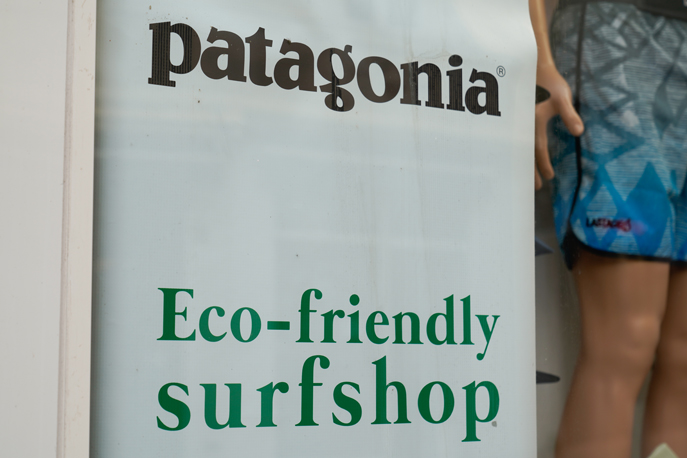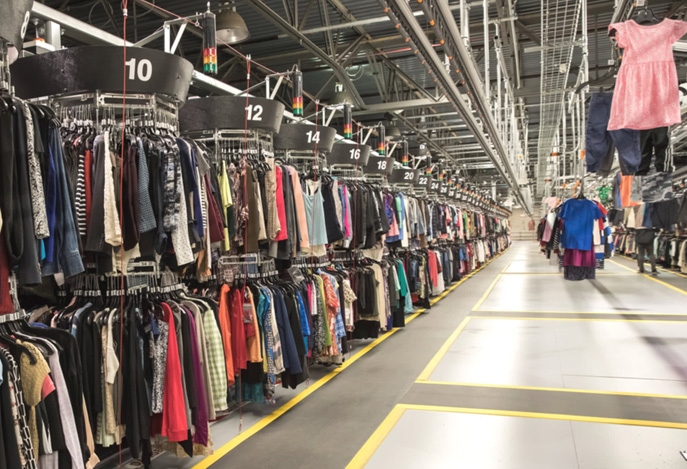It is an awakening that should have happened two decades ago, but companies are finally starting to understand that business as usual won’t wash, says Mark Wade
Twenty years ago the understanding of the need, business case and ways for companies to adopt sustainability into their core business were all there. What was right then is equally right now – just desperately more urgent.
In 1987, the UN Brundtland Commission defined the principles of sustainable development. Intended as a framework for governments, business was always seen as central to its delivery.
Yet there was a general lack of uptake, despite the need and business case being so clear. Why did some companies adopt, while the majority ignored it or got side-tracked? Part of the problem lay with terminology. Two decades ago, sustainability was seen as too complex for easy adoption. Other terms emerged offering softer options: social investment, CSR, and then, most recently, ESG.
CSR particularly missed the point, putting back the cause by decades. The “s” was taken to mean “social” – doing a bit of good rather than “societal”, which includes all dimensions of sustainability: economic, environmental, social. It enabled companies to outsource their conscience to a department remote from mainstream business rather than integrating sustainability into strategy and operations. Whole industries of practitioners and rating agencies emerged that, while well-meaning, perpetuated the error. Too much greenwash was peddled on the back of it.
Too many ESG funds continue to mislead investors by including companies that fall far short of being champions of sustainability
ESG was next. Well-intentioned, serving to raise legitimate issues, but too often treated as a matter of compliance rather than a driver of fundamental change. Too many ESG funds continue to mislead investors by including companies that fall far short of being champions of sustainability.
To others the message was clear. Sustainability needs to be core. Some took it as a founding purpose (Icebreaker's Jeremy Moon). A few CEOs had “ah ha” moments of personal insight (Ray Anderson of Interface). Others faced crisis (Nike). Many woke up to the global externalities and consumer pressure shaping the market (Marks & Spencer). To visionaries it was as a source of innovation and market advantage (Toyota). These were the early movers.
Bold leaders saw that their responsibilities extended beyond traditional roles. As Paul Polman said when he led Unilever: “If all I do is change the company then I have failed. I want to change the industry and its entire supply chain.”

Now it is the likes of Ørsted and Patagonia picking up the mantel, along with a new wave of B Corps and green tech startups founded on sustainability.
Each company has steered its own path. But the impact over the past 20 years has been patchy and woefully insufficient, because what was missing was a galvanising force to align action.
Now, after a year of climate extremes and shortages, business is finally waking up to the climate emergency and unsustainable resource depletion.
Sustainability is finally the “new” buzz word. The planet is no longer seen as the font of all forever, rather as a life raft on rations. How can that not be the case when developed economies are consuming more than four times their share of resources, extremes of poverty and wealth are widening, ice is melting, biodiversity is shrinking, and governments are dithering?
The centuries-old linear economy of ‘take, make, use, pollute, deplete’ is literally unsustainable. The loop must close
Business is accelerating its response, with the need stark and the opportunities endless. Companies are driving, and being driven, by a confluence of radical concepts and tools that challenge the foundations of capitalism.
The following is a glimpse of what is to come as these forces grow and combine. The precise timescale will be influenced by government policy, growth of public-private partnerships, consumer pressure, Generation Z and climatic events.
Circular economy – The centuries-old linear economy of “take, make, use, pollute, deplete” is literally unsustainable. The loop must close. What started as experiments in industrial ecology is manifesting as the circular economy of “design, make, use, reuse, remake, recycle”, all the time conserving and restoring ecosystems and communities. Renault is one company showing the way.
The move to decouple value from consumption will gather pace across all sectors through models of service (Mud Jeans’s Lease A Jeans) and reuse (thredUp), rather than ownership and consumption.

Net zero – The overdue scramble by companies to declare net-zero carbon emissions targets is accelerating. Alignment with the circular economy promises the halving of emissions of developed economies by 2050.
Carbon market – The disjointed carbon market will eventually become rationalised, enabling a global cost of carbon to be set at a level to invoke real change in behaviour and technology.
True-cost accounting – Valuing externalities is coming of age, exposing the true cost of unfettered capitalism. Companies will be required to calculate and report in the balance sheet, not just scope 1, 2 and 3 carbon emissions, but all their ecological and social impacts.
Offsets and other mitigation tools will fuel conservation and equality. A new dawn for the audit industry beckons.
Open-source and blockchain – Software will enable open-source manufacturing by connecting producers and waste sources with feedstock needs, optimising systems and driving the circular economy.
Blockchain will provide transparency on true costs, from source to reuse. QR/barcodes on labels will give access to credentials at point of sale, enabling brand differentiation and informed consumer choice, while exposing greenwash.
SME inclusion – Small businesses, which comprise 95% of OECD enterprises and 40% of GDP of developing countries, have largely been left to themselves. Open-source software offers the promise of a more inclusive, greener sector by connecting SMEs with “glocal” circular opportunities.

Cryptocurrencies – The rise in cryptocurrencies will further enable SMEs to buy-in, particularly in developing countries with fragile domestic currencies.
Green technology – From modular nuclear (Rolls-Royce), hydrogen infrastructure (Veolia) to Happy Dolphin bioplastics, green tech will transform the world, leaving market disruptions in its wake (Tesla/Hertz).
Green finance – Responsible investment will grow mainstream, as evidenced by banks, pension funds and insurance companies, representing $130tn, or 40% of world assets, signing up to net zero by 2050.
As COP26 failed to secure even 2C, it is down to business to step-up. Ethical Corporation can be depended on to continue to champion the next phase of corporate sustainability and hold business to its responsibilities throughout this defining decade.
What will success look like? When there is no difference between a company’s strategy and its sustainability strategy – just a business strategy purposed for a sustainable world.

Mark Wade was head of sustainable development strategy, policy and reporting for Royal/Dutch Shell in 2001, when he was interviewed for the first issue of Ethical Corporation magazine. He is currently an independent advisor helping companies, institutions, trade bodies and NGOs build a more sustainable world.
This article is part of the Winter 2021, and anniversary issue, of The Ethical Corporation. See also:
Celebrating 20 years of Ethical Corporation
Why business journalists need to challenge the ESG orthodoxy
In 20 years, Ethical Corporation hasn’t lost its pioneering spirit
‘Ethical Corporation has been a beacon of light in a sea of CSR dross’
Slim Pickens and wooden water pipes: Tales from a U.S. sustainability consultancy
‘By 2041, I suspect most major brands of today will be unknown’
To fight greenwash, brands need to become advocates for change
Why all MBA graduates need to be part of the sustainability revolution
Why nature is the secret, under-priced sauce of the global economy
‘As climate change takes an increasing toll, it will be a case of adapt or die’
Hope for achieving the SDGs lies in a new generation about to take over the boardroom
Brundtland Commission CSR ESG Paul Polman Ørsted Patagonia sustainability


